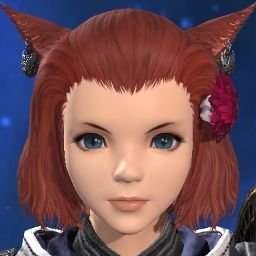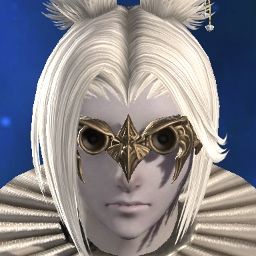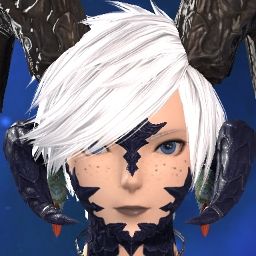Normally I wouldn't respond to anything on a thread like this, but I'm an English teacher and I about busted up laughing at this summary... The Tempest is a comedic romance, not a traditional Shakespearean tragedy, and what happened to Amaurot definitely does not map to the plot of The Tempest, which is not about a powerful wizard's powers going awry at all? (In fact, it's about a wizard using his power/enslaved spirits to seek justice against those who wronged him... which has shades of Zodiark seeking vengeance against Hydaelyn to it...)
If anything, Emet probably qualifies as an analog for The Tempest's Ariel or Caliban, magical beings who have been enslaved to serve the powerful wizard Prospero--sometimes these two agree to the things they are asked, but sometimes they are forced to act against their own will in Prospero's quest to return himself to his former glory. Ariel and Caliban together can be seen as an analogy for the way Emet views himself--as the "good" spirit--versus how we, the heroes, view him--as the "evil" spirit.
In terms of whether or not Emet qualifies as a tragic character, if we're talking in classic Greek dramatic traits, then yes, he probably does, because one of the central elements of a tragic hero is that their own flaws contribute to the tragedy they're stuck in. Characters in tragedies exhibit "fatal flaws" which contribute to their falls from grace. As you mention, hubris itself is a fatal flaw, and Emet's pride in his people and belief that his people's way of life is superior is what contributes immensely to his inability to allow Amaurot to fade into the past--he cannot accept the current races as the new inheritors of the star in part because of his overbearing pride and otherwise flawed character. Thus, he orchestrates the collapse of his own dream by failing to embrace change. Likewise, there's also tons of dramatic irony in that he insists his people were superior to the current races because of their peaceful and self-sacrificing ways... while he himself embraces violence to achieve his goal. The very fact that he can't fully identify the paradox/disconnect between what he's aiming for and his means of achieving that goal is what creates the tragedy. Tragedy also thrives on an element of inevitability--Emet cannot choose any other path than the one he ended up on in the game, in part because he's tempered and in part because he's just a flawed character, as I mentioned before. He was always going to end exactly where he did, and the conflict between himself and the WoL was unavoidable. Those indeed are all the really necessary ingredients for tragedy, at least in traditional terms.
A better topic might have been "Emet is unforgivable" which is probably an easier argument to win...
Thread: Emet-Selch Is Not That Tragic
-
11-14-2019 04:17 AM #51Player

- Join Date
- Mar 2014
- Posts
- 576
- Character
- Yehn'zi Panipahr
- World
- Coeurl
- Main Class
- Dark Knight Lv 90
(13)Last edited by sarehptar; 11-14-2019 at 04:40 AM.
-
11-14-2019 04:23 AM #52Player

- Join Date
- Sep 2015
- Location
- Gridania
- Posts
- 120
- Character
- Deadbeat Dad
- World
- Gilgamesh
- Main Class
- Summoner Lv 100
lmao this kind of low-tier anti bait doesn't even phase me at this point
Here for the popcorn tho
I leave bait of my own - if you don't consider Emet-Selch a tragic villain, you failed reading comprehension so badly that SE had to come out and say he was tragic, just for you.(3)
-
11-14-2019 05:12 AM #53Player

- Join Date
- Sep 2013
- Location
- Limsa Lominsa
- Posts
- 976
- Character
- Makeda Fyah
- World
- Ultros
- Main Class
- Reaper Lv 90
Basically Emet-Selch is a figure who's responsible for more death than... sorry for the Godwin... Hitler... and he goes emo on us.
I'm just sitting there having a Glorious Bastards moment and waiting to exact some justice...
As a PLAYER I wanted him to stay because he was a well written villain unlike Xenos. As my character I'm more like "lets just waste this demonic beast and make the multiverse a better place for it..."
It really didn't matter how tragic his story was... look at his body count and disregard for all life save that he felt was superior (there's another Godwin moment BTW)...
After all... Hitler had a tragic life... AND was a very EMO artist too boot... NOBODY feels sorry for that guy except for the people who deserve the same fate...
Being Emo and Tragic doesn't justify mass slaughter...
My character: waste the bastard
Me as a player: this is good writing, give me more of this please, toss Xenos on the pile of 'past expansions' PLEASE...(3)Striving for perfection is the path to one's downfall. 'Tis the paradox of the immaculate carrot. | Jah Bless. One God, One Aim, and One Destiny - Marcus Garvey.
Until the philosophy which holds one race superior and another inferior is finally and permanently discredited and abandoned, everywhere is war - Ras Tafari.

-
11-14-2019 06:11 AM #54
That the narrative tries to paint Selch as a "hero" actually really bothers me. A well-written villain? Definitely. I feel sympathy for the fate of Amaurot, to be sure. But Selch and his cronies? No. In fact, the one real time I felt heroic in this expansion was blowing a hole through him.
It's not only the deaths of untold numbers of people and creatures. The writers meant to show sympathy for him, I guess, when he rattled on about breaking bread and siring children and such, but the fact all of that was done under false pretenses (with beings he readily calls "not really alive" or just animals) is extremely squicky. The siring children part especially, I think there's a term for it, and it definitely isn't "heroic"? We never once are asked by the narrative to consider how twisted that is, consider the people who unwittingly lived a lie with him, were used by him as breeding fodder. We are only asked to feel bad for his feefees.
The writers also completely ignore the implications of his character when he spoke over Vauthry's mother to discuss the fate of her body with her husband, while she just stood silently there looking frightened. He corrupted a helpless infant in the womb. He's wearing either a corpse or an unwilling meat puppet from the First that he altered to suit his fancy. Yet I've seen the fanbase dehumanize and vilify Vauthry more than I have ever seen Selch taken to task, although Selch had free will to make his choices, and Vauthry had no choice or chance since before he was born. And the writers never let us set the record straight on this part, they just let us smile and nod as everyone goes on what a horrid evil person Vauthry was.
Watching the writers push the narrative of "hero" onto that sort of person felt like a slap in the face, or at least as immersion-breaking as a gigantic Talos.(5)Last edited by Puksi; 11-14-2019 at 06:17 AM.
-
11-14-2019 06:30 AM #55Player

- Join Date
- Sep 2013
- Posts
- 10,051
- Character
- Matthieu Desrosiers
- World
- Cerberus
- Main Class
- Reaper Lv 90
Whether or not somebody is a hero is very much a matter of perspective and personal interpretation. You don't consider him to be one? Fine, but it really shouldn't 'bother' anybody for others to look on him fondly. He's a fictional character in a fantasy setting. People consume entertainment to be entertained and that accounts for all sorts of different tastes. I'm sure there's characters that you like that others don't - it's just how the world works.
(5)
-
11-14-2019 07:03 AM #56
Enjoying a well-written villain is one thing. Trying to paint the evil they do in a positive light within the actual context of the story is another, though I would be morbidly curious how even a fraction of his atrocities could be explained away as "heroic". It sounds about as convincing as when Blizzard skewered frightened civilians fleeing their village on pikes and tried to call it "morally grey".
(3)
-
11-14-2019 07:08 AM #57
Its Ysthola who believes that they have such huge amount of aether that they only used it themselves. She can be right but also wrong. And we know that people must have existed that had less aether because methods existed to help them "craft" stuff. Maybe some of those started to use the aether of the planet or maybe not. In the end up until they decided to sacrifice more after their planet was save, I could go with them. After that they went horrible wrong.
Well the source might have still lived on for a couple of centuries or not but in the end they sacrificed themselves so that others can life, just like Amaurotines did that. I also dont think its easier to make because there is nothing in the game that says that the source would have been gone the next day either. It was certainly in a very bad place since it did not get better after 200 years but we dont know if they would have died out. So they still made the decision to sent someone back with the knowledge that in the next second they might all be death and not remembered. While at least the surviving Amaurotines could mourn and remember the heroes that saved them. (I would also say that if doom would stand directly at the door of our city, which is when they started to react, that quite a lot of people would sacrifice themselves to give at least some of their loved ones a chance. )
Exactly. Just because he believed himself to be the hero of his own story does not make him one. He talks about his race but people of his race were against his plan. I really doubt that he would truly be seen as a shining hero to those. And if those sacrificed people came back and found out that they got back because their tempered members of their races killed billions of lifeforms over a huge amount of time, I really wonder if they would be fine with that. I mean those (which are the majority of the ones from Amaurot) did not even know about this plan so had no vote in it. But if even the surviors were split on this then those might be too. And on top of that I am not quite sure if they would like the idea of being tempered.
Sometimes villians no matter the motive will still be villians. You can enjoy them and like them but he is really not a hero in any way. Heck I really like his character but I would never see him as someone morally good. And even Yoshida in an interview pointed out that just because the ascians have reasons to do their stuff does not change the fact that they have just destroyed whole words to get to their goal.(3)Last edited by Alleo; 11-14-2019 at 07:20 AM.
-
11-14-2019 07:13 AM #58Player

- Join Date
- Sep 2013
- Posts
- 10,051
- Character
- Matthieu Desrosiers
- World
- Cerberus
- Main Class
- Reaper Lv 90
It's simply a matter of looking at it from the perspective of the characters themselves, the context of the overall story and whatever relevant statements are made by the development team. They clearly intended to make him into a tragic, sympathetic hero who was fated to be cut down by another. They succeeded at that and quite a lot of people read into him in the same manner. Some, such as yourself, do not. Which is fine - I just don't understand the need some have to try and stifle support of the official narrative.
(4)
-
11-14-2019 07:22 AM #59
And if you only look at the perspective of the characters themselves then someone like Zenos is a hero too! Seeing how he sees life, he is quite right in what he does and is not evil at all. And no he was never meant to be seen as tragic hero. Even Yoshida made it clear afterwards that the Ascians are still the bad guys. Just now bad guys with at least some motives.
(3)Last edited by Alleo; 11-14-2019 at 07:49 AM.
-
11-14-2019 07:26 AM #60
It's interesting how a dissenting opinion against Selch's handling is "stifling support of the official narrative", while supporting it is "perspective and personal interpretation". Yoshi-P plainly said we should not forget the Ascians have murdered millions, they just do not stress it enough in the actual context, just as they didn't stress at all the skeevy nature of Selch lying to an untold number of partners--excuse me, "animals"--to make little pawns for his game. But then again, Square also let a character who bought a child and pressed her into prostitution off scot-free as part of the Doman Liberation Front. I suppose that one must surely be "heroic" himself. Somehow. ‾\_(ツ)_/‾
(3)Last edited by Puksi; 11-14-2019 at 07:37 AM.





 Reply With Quote
Reply With Quote









